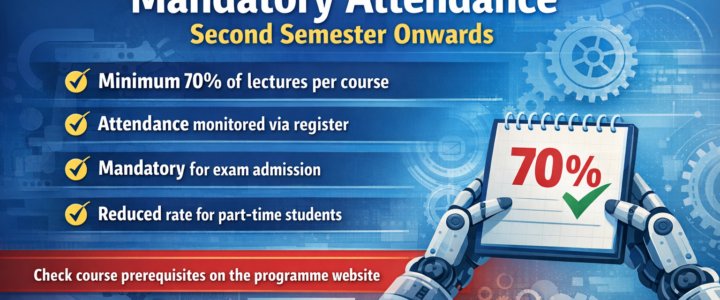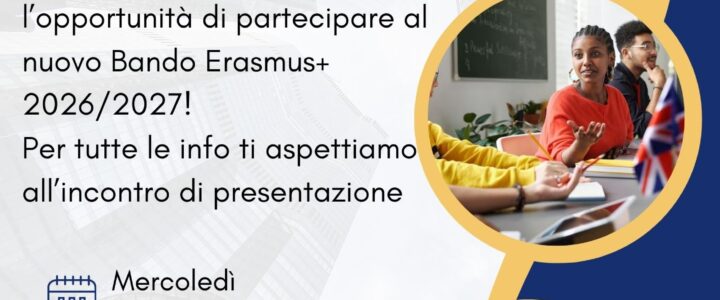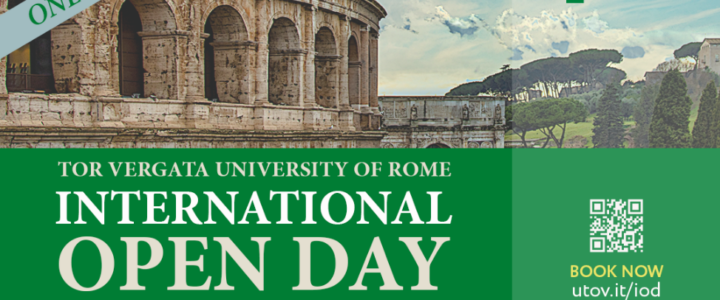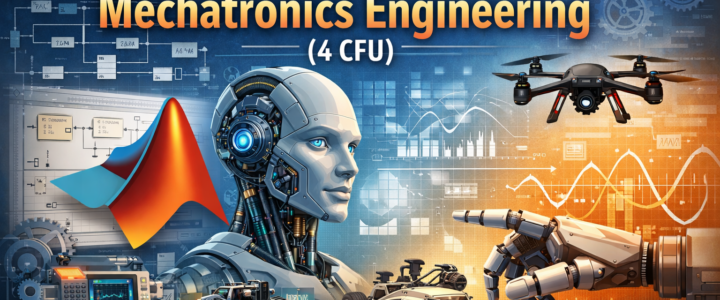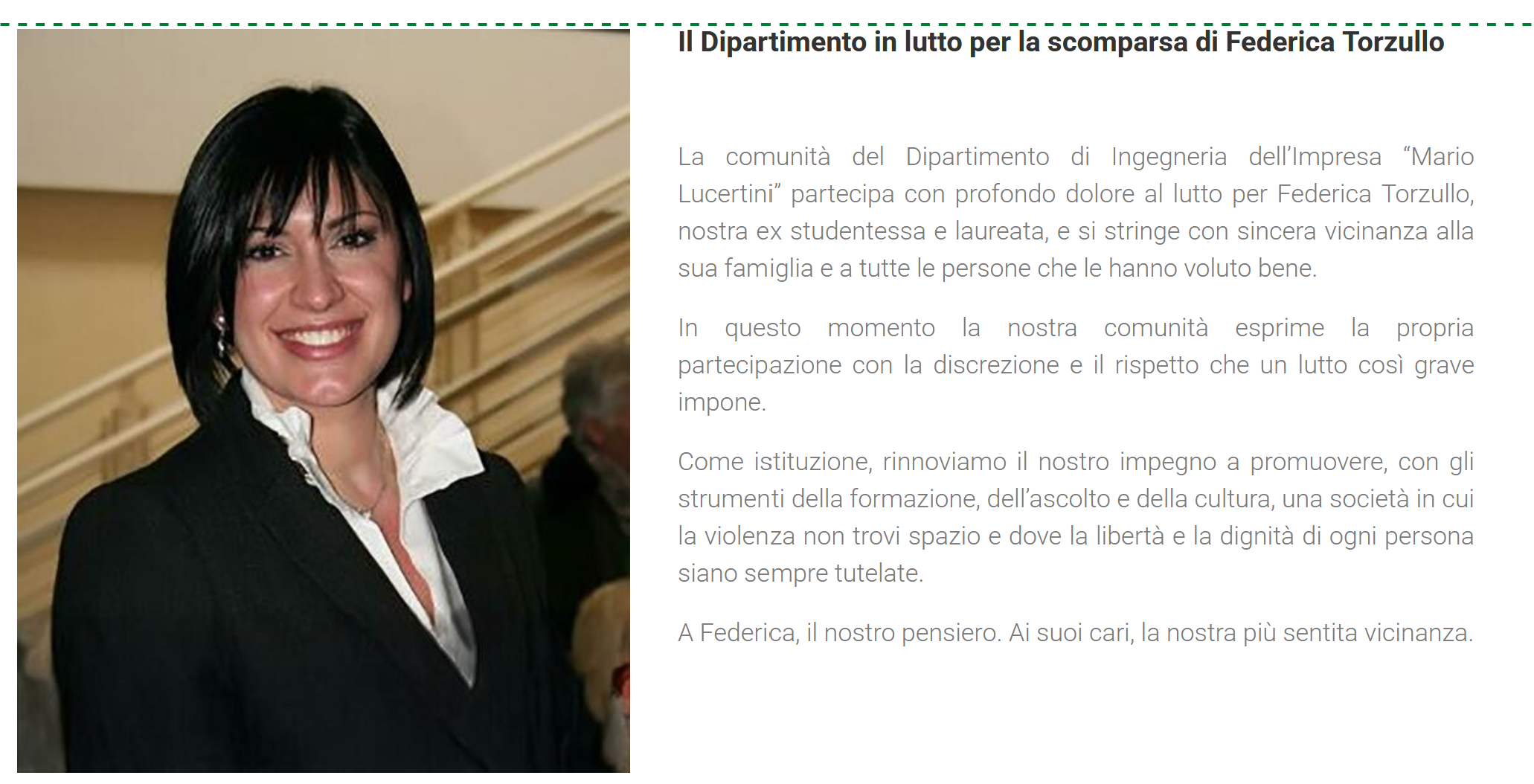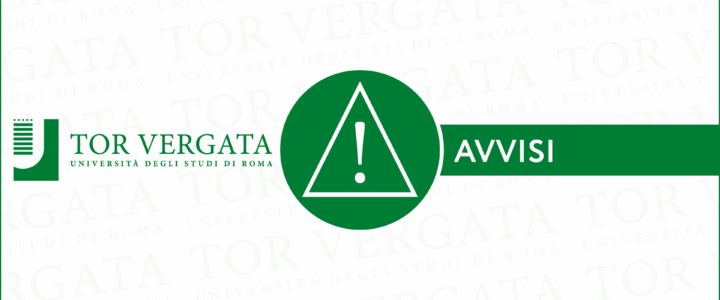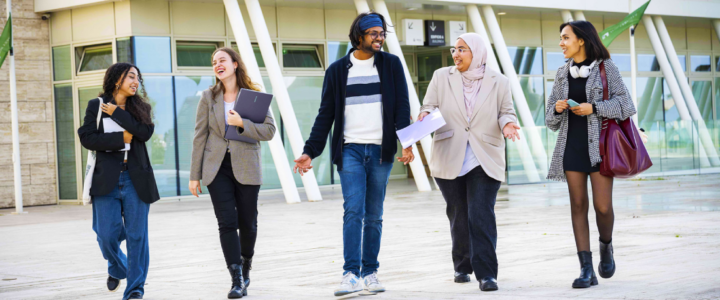⚠️ IMPORTANT NOTICE
Please note that, starting from the second semester, attendance is mandatory for all courses of the Master’s Degree in Mechatronics Engineering.
-
Minimum attendance required: 70% of lectures for each course
-
Attendance is monitored through a register
-
The requirement is mandatory to be admitted to the exam
-
For part-time students, the minimum percentage is proportionally reduced based on the agreed study duration
Students are invited to carefully review the course prerequisites in the course description section of the programme website.
More info:
Attendance is monitored through a register, and students must attend at least 70% of the lectures for each course to be admitted to the corresponding exam.
For part-time students (as regulated by Art. 13 of the Study Programme Regulations), the minimum attendance percentage is reduced proportionally. The required percentage is calculated by multiplying 70% by the ratio of the programme’s standard duration (2 years) to the agreed duration of the individual part-time study plan.
For example, if the agreed duration is 4 years, the coefficient is 2/4 = 0.5, and the minimum attendance requirement becomes 35%.
 UNIVERSITA' DEGLI STUDI ROMA "TOR VERGATA"
UNIVERSITA' DEGLI STUDI ROMA "TOR VERGATA"